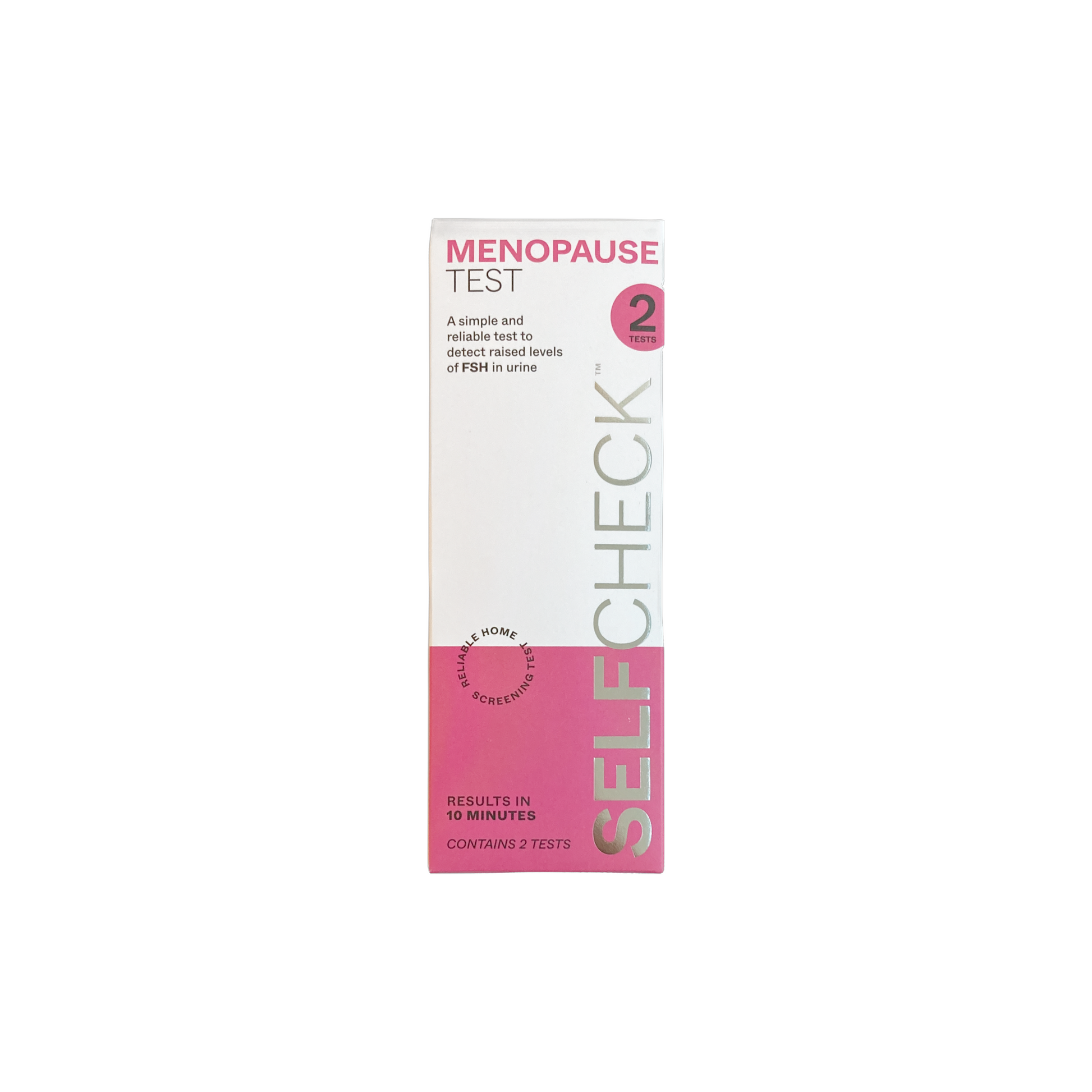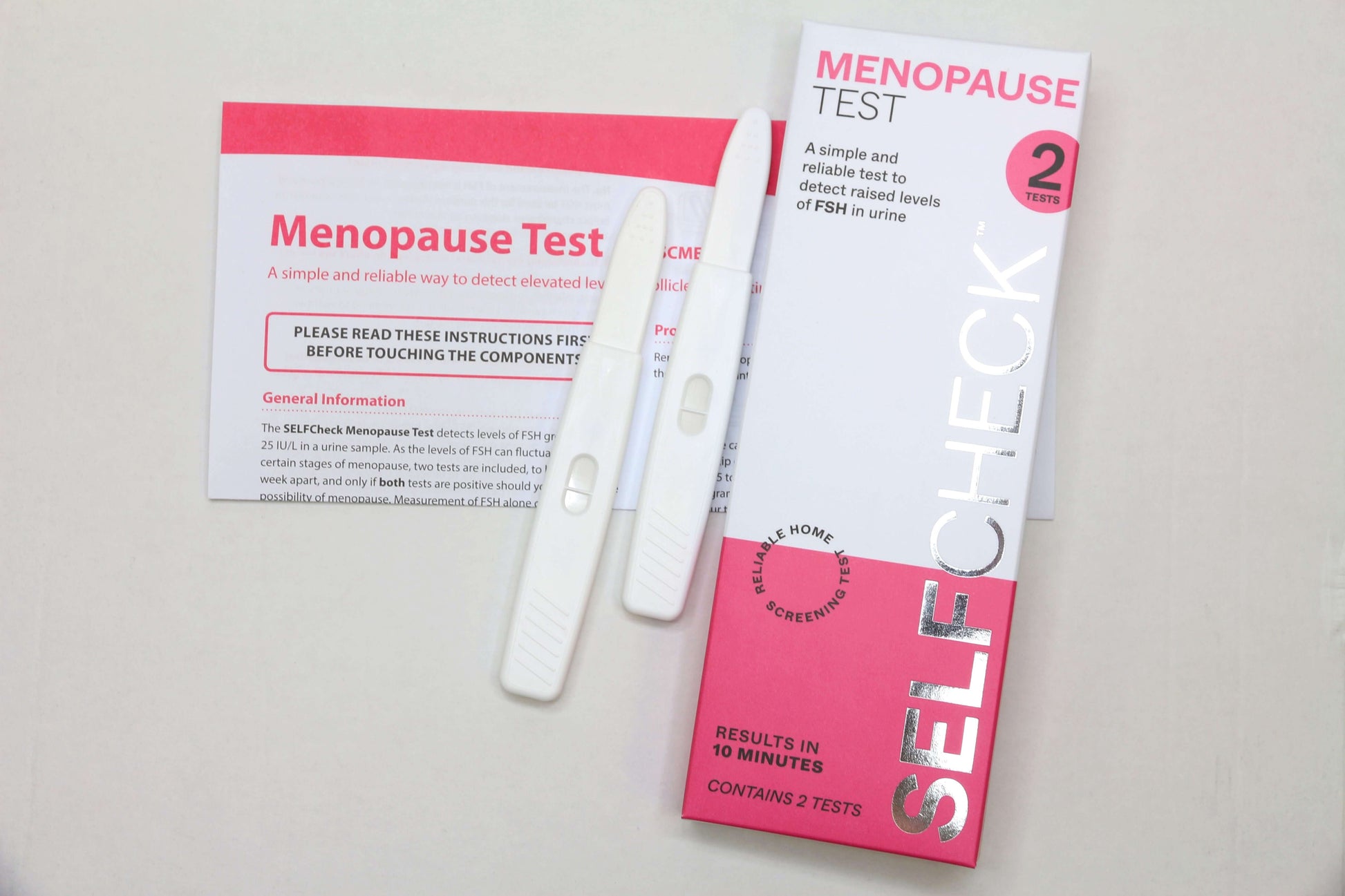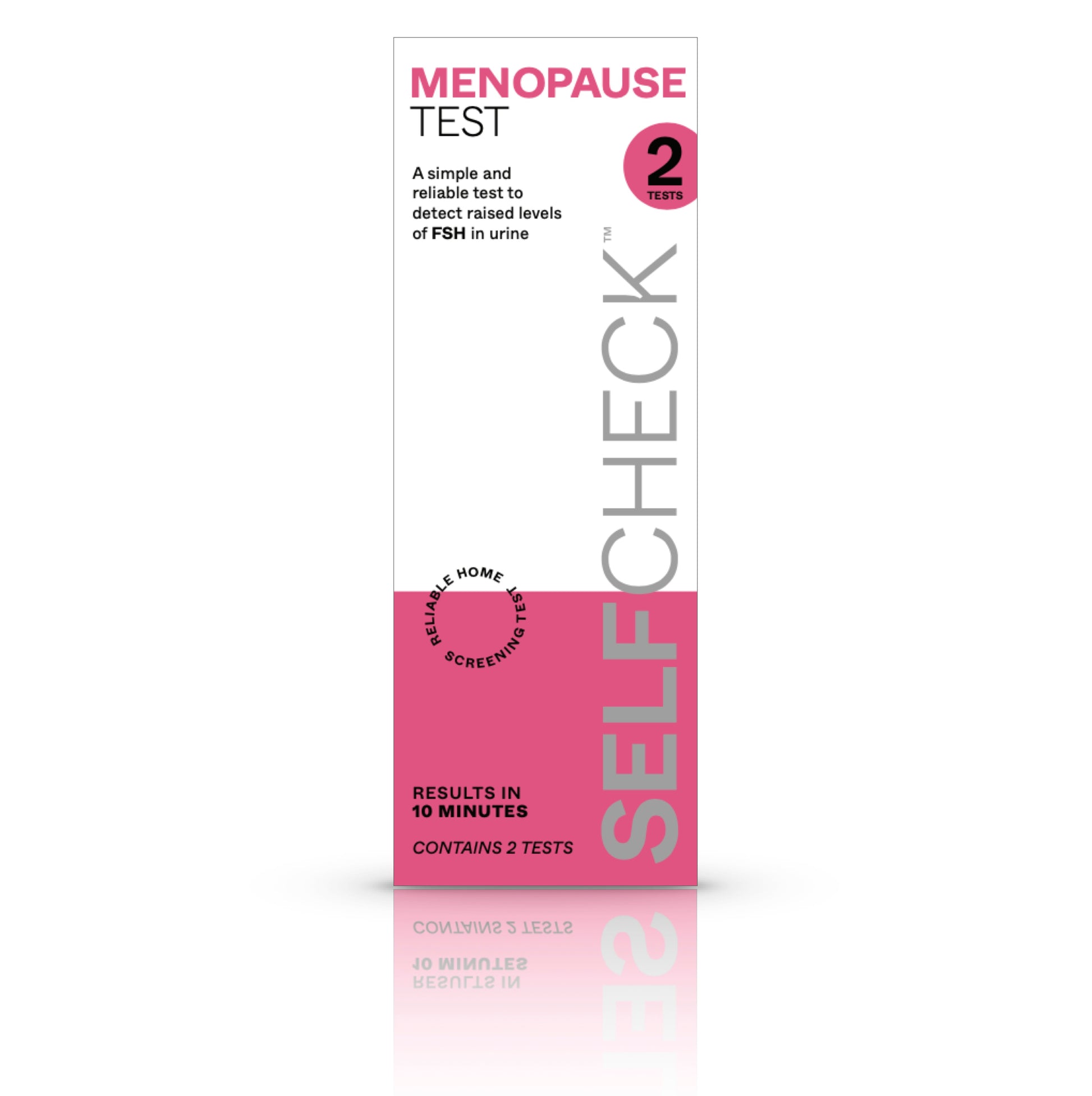SELFCheck
SELFCHECK Menopause (FSH) Test (2 tests)
SELFCHECK Menopause (FSH) Test (2 tests)
Free UK delivery on orders over £25
Free UK delivery on orders over £25
Order before 2pm Monday to Friday for same day dispatch (except holidays). All orders dispatched in plain packaging.*
Couldn't load pickup availability
SELFCHECK Menopause FSH Test (2 Tests)
The SELFCHECK Menopause Test detects higher than normal follicle stimulating hormone (FSH) levels in urine. In women over 45 years, menopause can usually be diagnosed by your doctor without the need for any tests.
An FSH test is most useful for women under the age of 45 who are experiencing menopause symptoms, or when menopause is suspected.
Two tests are provided, to be used one week apart. Only if both tests are positive should menopause be considered.
The test is calibrated to international standard WHO 08/282, has a cut-off of 25mIU/mL, and shows 94% agreement with hospital tests for FSH.
You must always discuss your result with your doctor before making any changes to your lifestyle, medication or contraception.
The SELFCHECK Menopause Test is a medical diagnostic device for home use which is CE certified and MHRA registered for self-testing.
Further information on menopause and FSH testing can be found in NICE Guideline NG23
Simple Steps to Take Your Test
Using the SELFCHECK Menopause FSH Test is straightforward:
1. Familiarise yourself with the instructions provided in the kit
2. Collect a urine sample in a clean, dry container, or hold the absorbent tip directly in your urine stream (midstream) as per the instructions
3. Insert the absorbent tip of the test stick into the urine sample for the time specified, or continue holding in the urine stream
4. Remove the test stick and lay it flat
5. Read your result after 10 minutes as indicated in the instructions
Interpreting Your Results
The test window will show lines indicating your result:
Positive Result (Elevated FSH): If two coloured lines appear, with the test line being as dark as or darker than the control line, this indicates elevated FSH levels. This suggests you may be in perimenopause or menopause.
Negative Result (Normal FSH): If only the control line appears, or the test line is lighter than the control line, your FSH levels are likely within the normal range. Your symptoms may be due to other causes.
Important Information
- Most doctors can diagnose menopause in women who are 45 years or older without the need for a follicle stimulating hormone (FSH) test
- Levels of FSH can fluctuate, which is why the test contains two tests to be used on two different occasions, and only if both tests show raised levels of FSH should menopause be considered
- You must not change your medication, contraception or lifestyle until you have had menopause confirmed by your doctor
- It is recommended to take the test using your first morning urine as it typically contains the highest concentration of FSH
- A positive result indicates elevated FSH levels but is not a definitive diagnosis of menopause on its own
- If you are experiencing symptoms, regardless of your test result, or if you have any concerns about menopause or your hormonal health, we strongly recommend consulting your GP or a healthcare professional for advice and diagnosis
- This test is not a substitute for a medical diagnosis from a healthcare professional
Information for health care professionals
Principle, performance data, and regulatory information on the SELFCHECK Menopause Test for health care professionals.
Reviewed 26th September 2025.
Before you decide to test
Before you decide to test
Before deciding to test, it is important that you understand the limitations of medical tests in general, as well as self-testing kits.
Make sure that you have considered what a result will mean to you before you take a test.
We also want you to be aware that no biomarker, even when checked by your hospital lab, is 100% perfect at diagnosing a specific medical condition. Because of this, a false positive result may cause unnecessary worry and further investigations, whilst a false negative result may give you peace of mind, when actually there may be an underlying condition that requires treatment.
Rather than purchasing a self-test kit, you may therefore wish to speak with your NHS GP first, who can arrange for tests if needed.
What SELFCHECK users say
What SELFCHECK users say
We invited SELFCHECK customers to tell us about their experience with their SELFCHECK test.
- 4/5 overall rating
- 9/10 easy to read instructions
- 4/5 thought that using the test was worthwhile
"All appeared good and instructions easy to follow"
"Everything was easy to follow"
"Very satisfied with your service"
"Simple enough, just had to check the instructions a couple of times"
The survey was completed in the Summer of 2024 of 118 random respondents who purchased one of our SELFCHECK tests. All customers are provided with contact information for our customer care team with their test, if they need any help to use their SELFCHECK test, or help to interpret their results.
For further information on how the scores were calculated please contact SELFCHECK.
Information for doctors
Information for doctors
SELFCHECK has been a leading British brand of health checks for over 10 years.
At SELFCHECK, we're working hard to make self-testing better for your patients. All our medical tests are assembled at our quality assured (ISO13485) medical device facility in the UK, and registered with MHRA according to UK medical device regulations IVDD/IVDR.
We are working closely with the NHS and academia to develop new diagnostics at our own UK R&D labs, particularly in the areas of sepsis, and the monitoring of chronic diseases.
Our professional customer care team provide help for your patients, so they can fully understand how our tests work, and how they should be used.
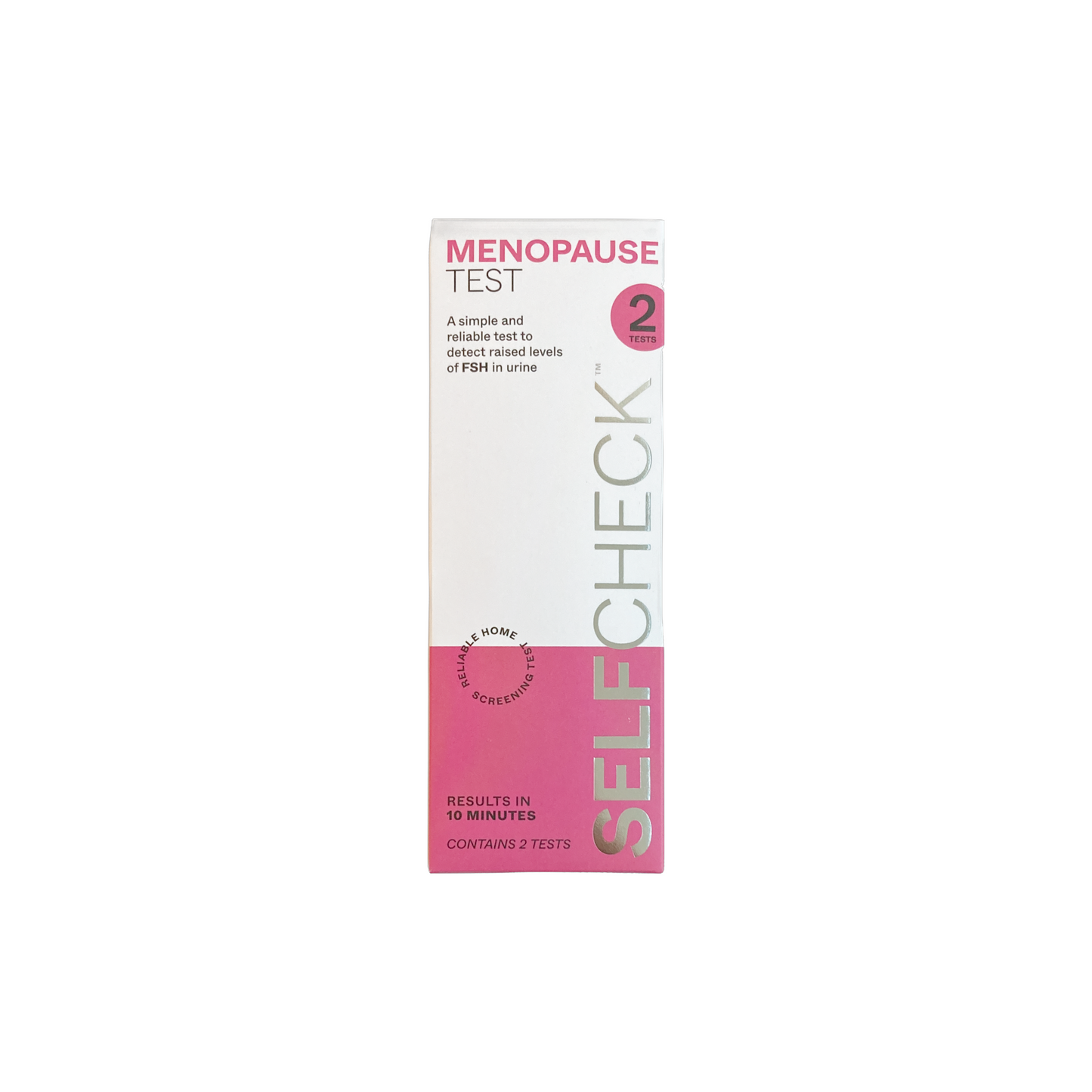
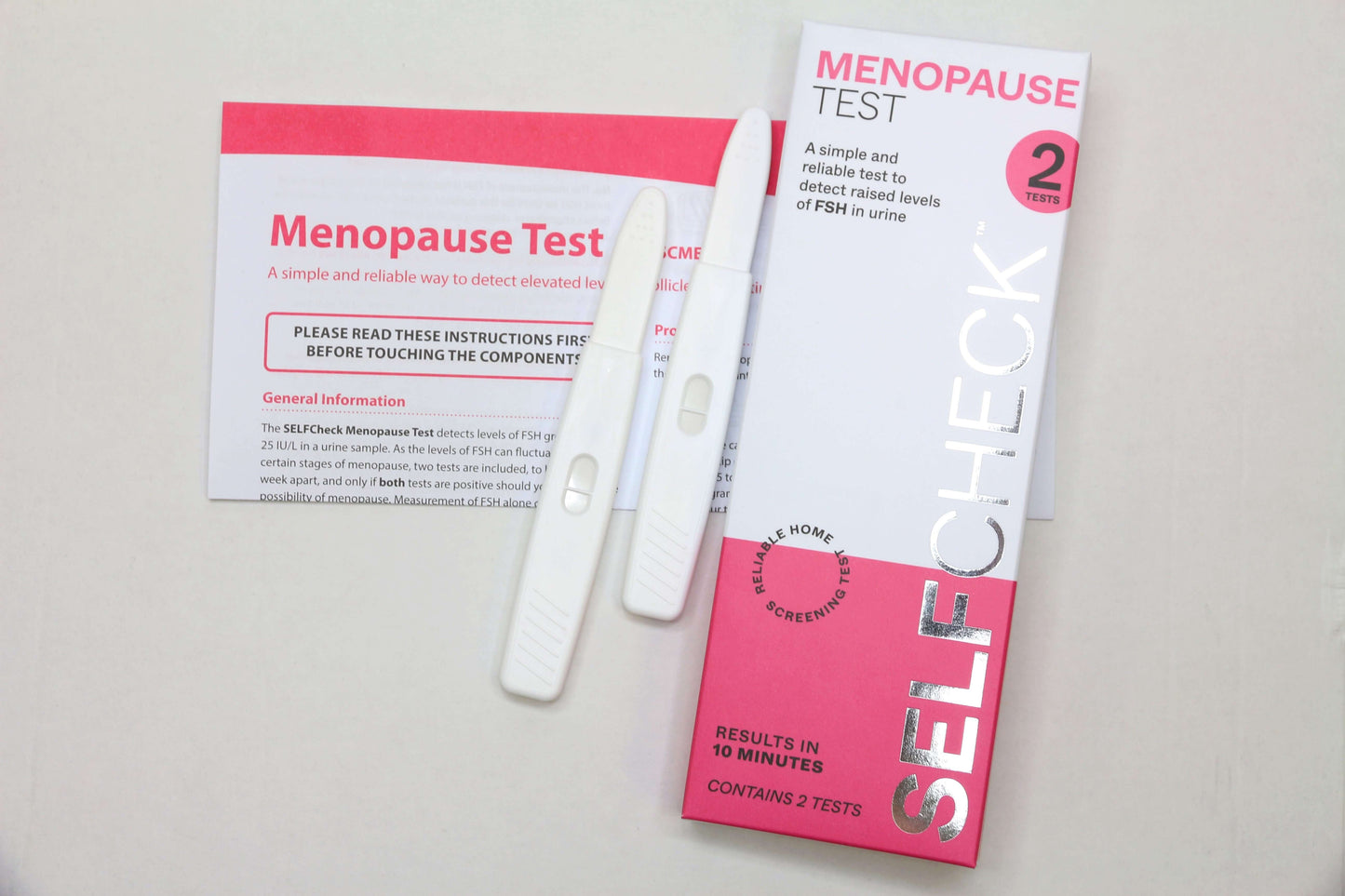
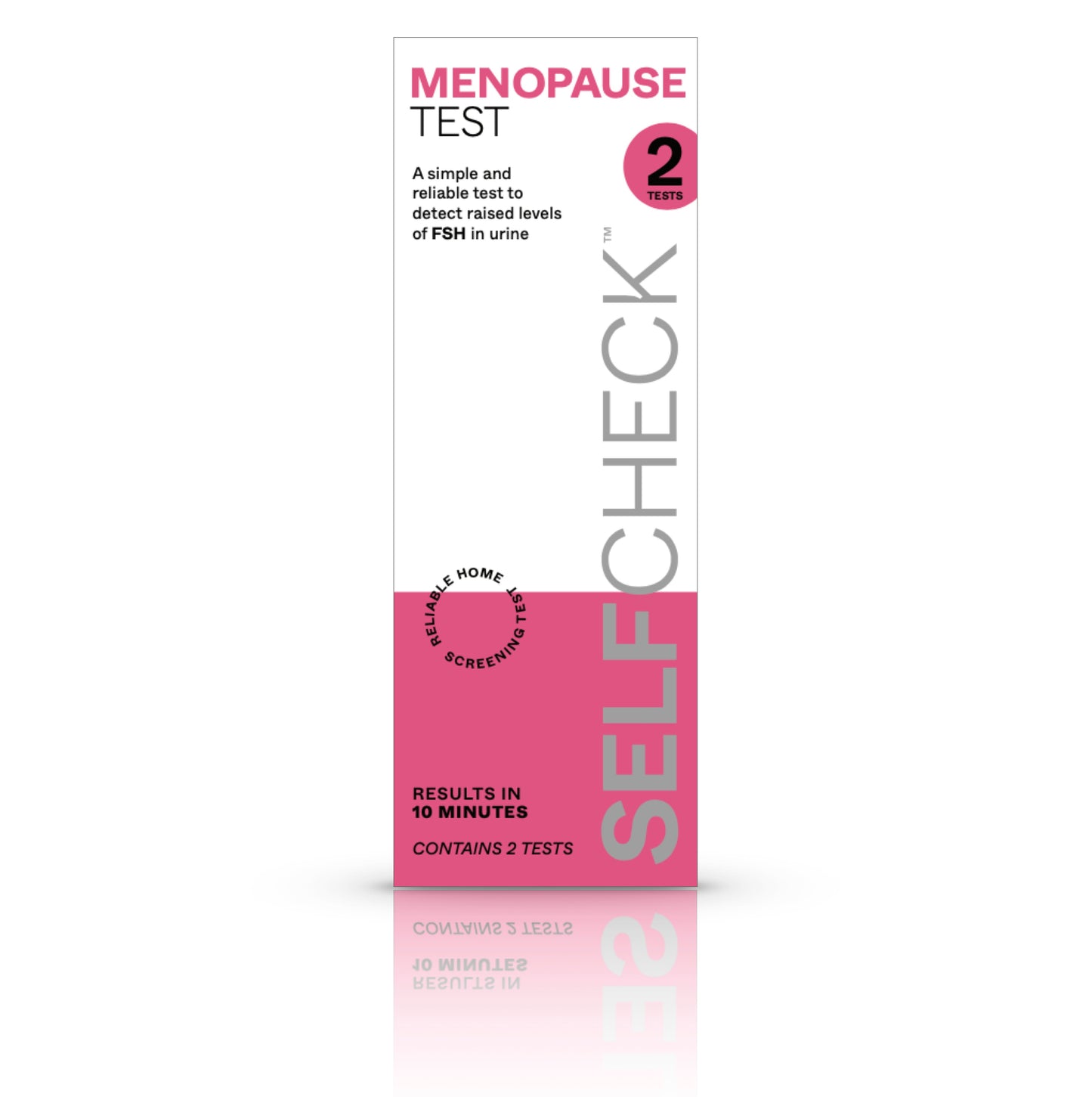

Important to know
All SELFCHECK branded tests are assembled by us in the UK at our ISO13485 certified manufacturing and R&D facility. Our medical tests are also CE certified according to UK and EU regulations, and registered with MHRA as self-testing devices.
Our tests are based on the same principles used by hospital labs, and provide reliable, meaningful results, but self-testing is not meant to replace established NHS healthcare pathways. Always consider what a positive or negative result will mean to you before testing, and be aware of the limitations of the test you are using.
If you have symptoms that concern you, or are anxious about your health, always speak with your pharmacist or doctor.

